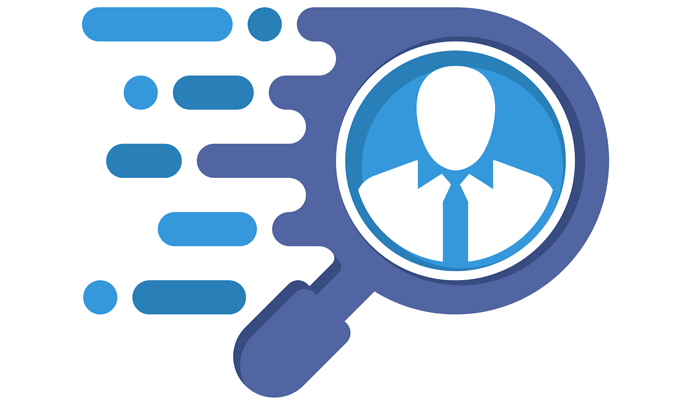Productivity Hacks from the Road
What travel can teach you about making organizations more productive.
Frequent travel has taught me a great deal about personal productivity. (I spend up to a third of my time on the road.) Like President Obama, I choose my suits from a color palette that ranges from blue to gray. All of my dress shirts are blue. Everything goes with everything else, which enables me to pack for a business trip to anywhere in less than 20 minutes. Beyond teaching me to take an efficient approach to fashion, my constant travel has given me several insights into organizational productivity. And looking at what hotels do well — and sometimes do not do well — has been a particular source of inspiration. Because they work in a highly competitive environment with a diverse workforce and fickle clientele, hoteliers have given us several lessons that are applicable across many industries. Here are three cases in point:
Know when to keep it simple. Have you ever been in a hotel room with stunning bathroom fixtures? They’re gorgeous objects, right out of Architectural Digest. But, as the clock is ticking down to your first meeting, you can’t figure out how to turn on the shower. Too often, I have been in this situation. Research shows that we all have limited cognitive capacity for decision making and complex thinking, as Daniel Kahneman pointed out in Thinking, Fast and Slow. None of it should be wasted on thinking about the shower, the climate controls, or the alarm clock. Smart hotels keep things simple.
Smart organizations do the same. The more time and effort spent wrestling with your HR systems, expense forms, and other internal processes, the less energy is available for innovating and serving customers. So how can we root out the disruptions created by unnecessary complexity? All it takes is a willingness to ask for and to hear the unvarnished truth. Your frequent travelers have long ago spotted the inanity in your travel policies. But they have likely never had an incentive to point them out. Similarly, your managers know which internal procedures make sense and which do not. They feel the pain but usually have little to gain by entering the maw of the bureaucratic beast in an effort to try to drive change. Tap into the potential efficiency by creating the conditions through which you can make employees’ lives easier while they help you make the entire organization more productive.
Master variable pacing. After your shower, you head downstairs to the hotel restaurant for a breakfast meeting. Or maybe you want to grab a quick bite before heading to your office across town. The best waitstaff know to size up how fast you want to move through your meal, alert the kitchen accordingly, and manage to always be there when you need them without ever seeming intrusive. Those with lesser skills treat everyone the same. As a result, hotel guests in a rush wind up as frustrated as those who want to linger at their table in order to close a big deal.
How adept is your organization at flexing its policies and actions to meet the distinct needs of your best customers, employees, and suppliers? Strict business rules that impose excessive standardization can thwart attempts to display initiative to achieve your larger mission. Simple rules have long proven their value in strategic agility; let them do the same for your operations. Make them value-based to catalyze order beyond anything that control alone can achieve as you push decision-making authority to the front lines.
Consider an organizational concierge. A great team at the concierge desk routinely executes complex tasks with ease, and sometimes renders the impossible possible. Team members navigate internal systems and external resources with great facility. Their success is built on relationships that add value for multiple stakeholders. Yet in our far-flung, complex organizations, we rely on manuals, wikis, and, quite often, ad hoc informal networks to figure out how to get things done when they fall outside of our normal activities. It is an incredibly inefficient way to provide access to just-in-time knowledge.
A great team at the concierge desk at a hotel routinely executes complex tasks with ease, and sometimes renders the impossible possible.
In the great 1957 film Desk Set, Katharine Hepburn and her crack TV network research team were able to answer almost any question in a snap. Of course, as was the case in Desk Set, it is easy to calculate (and try to eliminate) the cost of people providing a given service, but it is difficult to capture the cost of the wasted time they save. So rather than asking the rest of us to fumble about, try putting your online resources in the hands of a few people who know how to navigate them. That is what the efficiency expert, played by Spencer Tracy, was trying to do in the movie. Yet here we are, nearly a half-century later, still struggling to learn that lesson. The Six Sigma folks have Master Black Belts who can share knowledge and sort things quickly. Why not leverage similar expertise firm-wide?
Several years ago, I had the pleasure of putting together a series of workshops with management guru Gary Hamel. He engaged participants in an exercise in which they were asked to imagine an excellent company from another industry running an organization. For example, what if Starbucks ran the U.S. Postal Service? This was a way to help people reframe their challenges and expand their thinking. Try that experiment, only this time, have your favorite hotel play the role of the new owner. What would you do differently as you adopt its ethos? Would the look and feel of your facilities change? How would the lens of hospitality and guest service alter how you approach eliminating the persistent barriers to increased productivity?
Sometimes a road trip can provide just the perspective you need at your home base.



